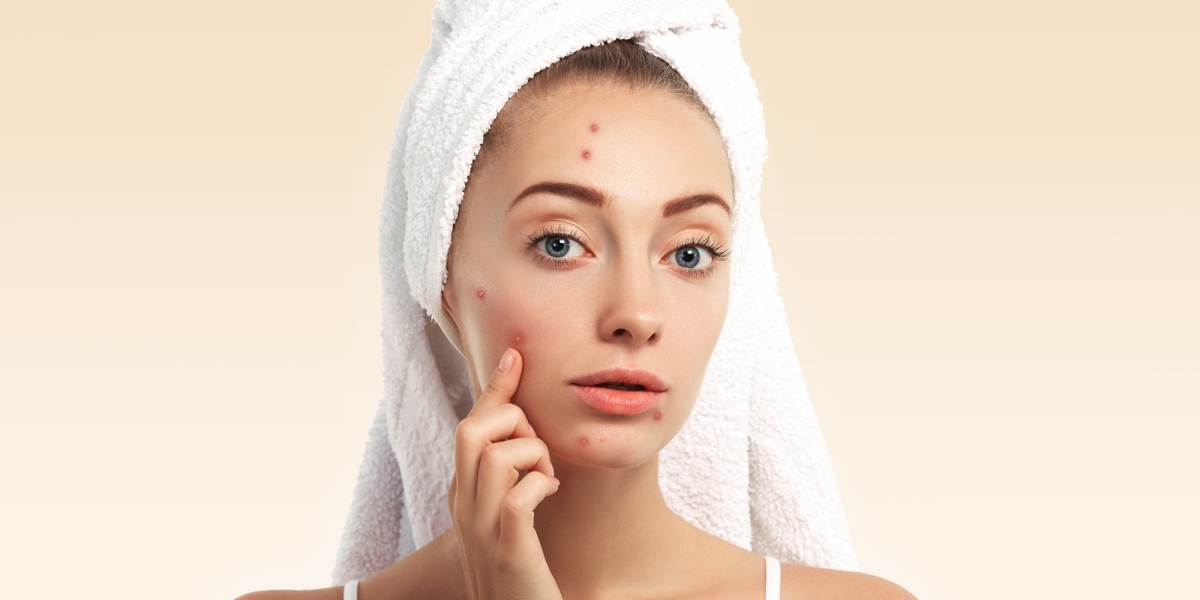Pimples are a common skin concern that affects people of all ages, often caused by clogged pores, bacteria, and excess oil production. While they can be frustrating, understanding the various treatments available can help you manage and reduce breakouts effectively. This guide explores different pimple treatments, from over-the-counter solutions to professional procedures, to help you find the best approach for your skin.
1. Understanding the Causes of Pimples
- Hormonal Changes: Hormones like androgens can increase oil production, leading to clogged pores and breakouts.
- Diet: High glycemic foods and dairy products may contribute to pimples in some individuals.
- Stress: Stress can trigger hormonal changes that lead to pimples.
- Poor Skincare Habits: Inadequate cleansing or using the wrong products can aggravate the skin.
2. Over-the-Counter Treatments
- Benzoyl Peroxide: This powerful ingredient kills bacteria and reduces inflammation, making it effective for mild to moderate acne. Available in creams, gels, and cleansers.
- Salicylic Acid: A beta hydroxy acid (BHA) that helps exfoliate the skin, unclog pores, and reduce inflammation. Ideal for blackheads and whiteheads.
- Retinoids: Topical retinoids like adapalene help increase cell turnover, preventing clogged pores and reducing the formation of new pimples.
- Sulfur: Known for its antimicrobial properties, sulfur helps dry out pimples and remove excess oil.
3. Prescription Medications
- Topical Antibiotics: Clindamycin and erythromycin can be prescribed to reduce bacteria and inflammation. Often used in combination with benzoyl peroxide.
- Oral Antibiotics: For more severe cases, oral antibiotics like doxycycline or minocycline may be prescribed to fight bacterial infections.
- Hormonal Treatments: Birth control pills or spironolactone can help regulate hormones that cause acne, particularly in women.
- Isotretinoin (Accutane): A potent oral medication for severe, cystic acne that doesn’t respond to other treatments. It reduces oil production and prevents clogged pores but requires careful monitoring due to potential side effects.
4. Professional Procedures
- Chemical Peels: A dermatologist applies a chemical solution to exfoliate the skin and unclog pores. Peels can also reduce acne scars and improve skin texture.
- Laser and Light Therapy: Treatments like blue light therapy target acne-causing bacteria, while lasers can reduce inflammation and improve skin texture.
- Microneedling: Tiny needles create micro-injuries in the skin, promoting collagen production and reducing acne scars.
- Extraction: For stubborn pimples or comedones, dermatologists can perform extractions to safely remove them without causing further damage to the skin.
5. Natural and Home Remedies
- Tea Tree Oil: A natural antiseptic, tea tree oil can help reduce inflammation and kill bacteria. Use diluted to avoid skin irritation.
- Aloe Vera: Known for its soothing properties, aloe vera can help reduce redness and inflammation.
- Honey: With natural antibacterial properties, honey can be applied as a mask to reduce pimples.
- Apple Cider Vinegar: The acidic properties can help balance the skin’s pH and reduce bacteria, though it should be diluted before use.
6. Preventive Measures
- Consistent Skincare Routine: Cleanse your face twice daily with a gentle cleanser, and avoid harsh scrubbing.
- Non-Comedogenic Products: Use skincare and makeup products labeled as non-comedogenic to prevent clogged pores.
- Healthy Diet: Maintain a balanced diet rich in fruits, vegetables, and whole grains, while minimizing sugar and processed foods.
- Regular Exercise: Exercise helps reduce stress and improve circulation, which can benefit your skin.
- Hydration: Drink plenty of water to keep your skin hydrated and support overall skin health.
7. When to See a Dermatologist
- If over-the-counter treatments aren’t effective, or if you experience severe, cystic, or persistent acne, it’s time to consult a dermatologist. They can prescribe stronger medications or recommend professional procedures tailored to your specific skin type and concerns.
Conclusion
Pimples can be managed and treated with the right approach, whether through over-the-counter products, prescription medications, or professional treatments. A consistent skincare routine, combined with healthy lifestyle choices, can help prevent future breakouts and keep your skin clear. Remember, patience and persistence are key, as it can take time to see significant improvement. If in doubt, always seek advice from a skincare professional to ensure you're using the best treatment for your skin.
